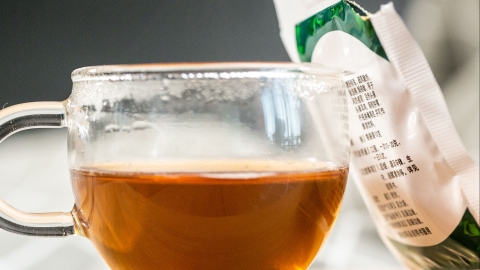Why should one avoid taking mung bean soup and cold medicine at the same time?
Generally, there are several reasons why mung bean soup and cold medicine should not be taken simultaneously, including pharmacological conflicts, interference with drug absorption, increased gastrointestinal burden, disruption of drug metabolism, and increased risk of allergic reactions. The specific details are as follows:

1. Pharmacological Conflict: Mung beans are cool in nature and have effects of clearing heat and detoxifying, and relieving summerheat and edema. If the cold medicine being taken is a warming and nourishing type of traditional Chinese medicine for treating cold-induced common colds, such as Ganmao Qingre Granules, which are warm in nature, there is a pharmacological conflict with mung beans. Taking them together may weaken the warming effects of the nourishing medicine due to the cooling nature of mung beans, thereby reducing the efficacy of the cold medicine and affecting the treatment of cold-induced common colds.
2. Interference with Drug Absorption: Mung beans contain abundant proteins, tannins, and other components, which may bind with certain ingredients in cold medicines, forming insoluble complexes in the gastrointestinal tract. This may affect the rate and extent of drug absorption, preventing the medication from exerting its full effect. When taken with medications containing metal ions, components in mung beans might bind with these ions, reducing the drugs' bioavailability.
3. Increased Gastrointestinal Burden: Mung beans contain relatively high levels of dietary fiber, which requires more gastrointestinal motility and digestion during the digestive process. During a cold, the body's digestive function often weakens. Taking mung bean soup and cold medicine together may further increase the burden on the gastrointestinal tract, potentially causing gastrointestinal discomforts such as indigestion, bloating, stomach pain, and diarrhea, which are unfavorable to recovery during a cold.
4. Disruption of Drug Metabolism: Certain components in mung beans may affect drug-metabolizing enzymes in the liver. Some cold medicines need to be metabolized and transformed by these liver enzymes to exert their therapeutic effects or be excreted from the body. Components in mung beans might induce or inhibit the activity of these enzymes, thereby altering the metabolic process of the drugs in the body.
5. Increased Risk of Allergic Reactions: Although mung bean allergy is relatively uncommon, individuals allergic to mung beans may experience allergic reactions, such as rashes, itching, and difficulty breathing after consuming mung bean soup. Some cold medicines also carry a risk of allergic reactions. Taking them together could increase the likelihood of allergic reactions, making the symptoms more severe and increasing bodily discomfort and treatment complexity.
To ensure the efficacy and safety of cold medicines, it is recommended to avoid consuming mung bean soup during medication.









